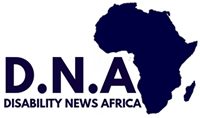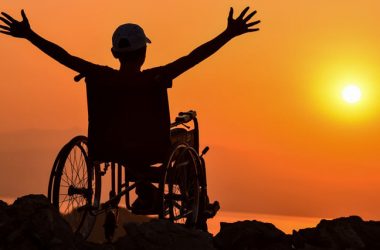The National Council on Persons with Disability, the state agency for disability matters, and the disability movement in the country have launched a campaign to raise awareness about the existence of the Disability 2006, Act 715, and to ensure that members of the public comply with it.
The initiative dubbed “A decade of campaign and compliance with the Disability Act”, will encourage a renewed public education drive, using the media and other platforms; and also efforts to make the public yield to the provisions of the Act, including taking institutions and individuals on in court.
The initiative has become necessary as it has been observed that despite the existence of the Disability Act for almost two decades, many Ghanaians are unaware of it, hence the continuous denial of the rights of persons with disabilities in the country.
The decade of campaign and compliance was launched at this year’s National Disability Day celebration in Accra on Friday, June 23, 2023.
The chairman of the governing board of the National Council on Persons with Disability, Mr Yaw Ofori Debrah, who led the process, admonished members of the disability community to make deliberate efforts to make friends with the media to accelerate their public education activities; as well as with lawyers to enable them to obtain pro bono services in situations where legal actions are required.
The theme for this year’s National Disability Day celebration was “Amend Ghana’s Person with Disability Act Now: A Step to Realizing the Sustainable Development Goals (SDGs).”
The event organised by the Ghana Federation of Disability Organisations (GFD) was to draw attention to the need for prompt action from duty-bearers in re-enacting the Persons with Disability Act, 2006 (Act 715).
On June 23, 2006, the Parliament of Ghana passed Act 715. The Act was established to promote and safeguard the rights of individuals with disabilities in Ghana, ensuring their fair and meaningful participation in society at all levels.
The GFD, through this year’s theme, aimed to highlight existing gaps in Ghana’s Disability Act and call on duty-bearers to amend it to align with international treaties and protocols, including the United Nations Convention on the Rights of Persons with Disabilities of 2006, which Ghana ratified in 2012.
Furthermore, the theme sought to mobilize stakeholders to work collectively toward the effective inclusion of persons with disabilities in achieving the Sustainable Development Goals.
The Persons with Disability Act in Ghana currently has several deficiencies. For example, the Act does not acknowledge inclusive education, despite Ghana having adopted an inclusive education policy.
Additionally, it lacks provisions protecting the rights of women, children, and the elderly with disabilities.
Moreover, the Act fails to provide a clear definition of the concept of disability and does not embrace the evolving nature and understanding of disability. Instead, it approaches disability from a charitable and medical standpoint.
These identified shortcomings, among others, underscore the necessity for a comprehensive review of the Act, according to the GFD.
It is also the contention of the disability community that Act 715 does not align with the obligations outlined in Article 4 of the United Nations Convention on the Rights of Persons with Disabilities.
The Convention emphasizes the rights of individuals with disabilities and introduces a social model that recognizes the existing barriers hindering their full and equal participation in society, contrasting the functional limitations emphasized by the medical and charitable models.
The Convention on the Rights of Persons with Disabilities introduces essential concepts such as inclusion, reasonable accommodation, accessibility, universal design, and communication, including sign language.
The disability community again finds the absence of these concepts from Act 715 “regrettable”.
Since 2009, June 23 has been observed annually as the National Day of Persons with Disabilities, with each year addressing specific issues related to the Act and the rights of individuals with disabilities.
Another campaign, “Equal World Campaign” was also launched at the celebration.
The Equal World Campaign also aims at urging member-states of the United Nations (UN) to focus more attention on improving the quality of life of persons with disabilities.
Mr. Yaw Ofori Debrah asserted that the SDGs which were declared in 2015 by the UN to, among other things, seek equality for all persons, and how the vulnerable in various societies should be catered for, had not done much to improve the lot of persons with disabilities across the world.
He said, in September this year when the UN will be meeting to review the SDGs, they were, through the Equal World Campaign, appealing to the UN member-states to reconsider the goals to favour persons with disabilities, women, girls, refugees and other vulnerable groups.
This year’s event was funded by Sightsavers and Disabled Peoples Organisation Denmark (DPOD).






